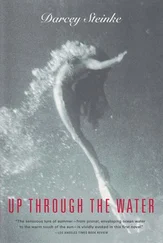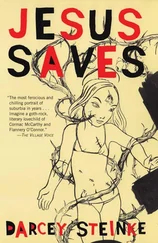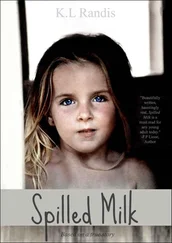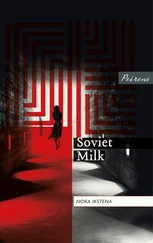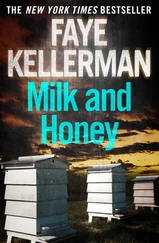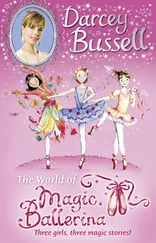The bishop stabbed a piece of steak with his fork and swung it back and forth in the cream sauce. “What about the money I gave you in September?”
“The leak in the roof wiped that out. The whole ceiling had to be plastered. If you could float us one more month the stewardship committee is planning a phone-a-thon at Easter.”
“What about Newberry?”
“I went to see her last week. Blessed her cat, looked at her photos of Tuscany, the whole nine yards.”
The bishop smiled and held his eyebrows up. “I’d go over and talk to her again. Be more explicit this time.”
“Do you want me to beg her?” His voice sounded angry, but he didn’t care, remembering how Mrs. Newberry had gone into the kitchen to get him something but returned with a package of pasta instead of her checkbook.
“I thought you understood, Walty. You need to make a go of it out there,” he said as he reached in his pocket for his wallet and took out three hundred-dollar bills. “This is a gift, Walty. But I am deeply disappointed. Your mother would roll over in her grave if she could see you at this point.”
Walter thought of his mother sleeping in their tiny Queens apartment; in her polyester nightgown she had snored away on the foldout couch.
Walter was in a light-headed state of postcoital bliss as he lay beside the blond boy on his narrow twin bed. After he left the bishop, he’d found the boy at the Two Potato, and they’d come over here. The radiator in the corner hummed reassuringly, and he looked past the slats of the fire escape to the darkened apartment building across the alley. One window showed a gingham potholder hanging over a stove. The boy slept in a flannel shirt and his body smelled like wet dirt. He shifted and asked Walter if he was okay; he said it so sweetly, his breath against Walter’s collarbone, that he turned to the boy and began kissing him again. His cock hardened against Walter’s leg; his testicles were huge, each like a brown egg. Physically, he was nothing like Carlos, but his earnestness was similar. And he was a good kisser, understanding that kissing was all about the nuance of touch rather than touch itself.
“What do you do, anyway?” the boy whispered. “I mean for money.”
“I sell insurance.”
“Oh.” He was clearly disappointed. Walter remembered that earlier the boy had said he studied Sanskrit.
In an effort to make up for his dull profession, Walter slid down between the boy’s legs and ran his tongue up the length of his cock. The boy’s fingers moved through his hair and pressed Walter’s head into his pelvis. After a while the boy came, and Walter lay back down and looked up at the ceiling. He remembered how Silk had wiped the corners of his mouth with his linen napkin and pushed his chair out from the table. A crack near the far wall resembled an octopus tentacle, and the light in the alley was extinguished so the objects in the room looked vague and mysterious, like algae-covered refuse lying on the bottom of the sea. The bourbon was wearing off, and Walter held his white arm straight up in the dark room.
When he got home Mary’s door was ajar. In the slant of light from the hallway he saw the baby in his terry-cloth sleeper and Mary lying fully clothed beside him, asleep but at an odd angle, legs akimbo and arms out like a drunken sailor. In the corner where her aleph had hung, now bits of masking tape dipped down from the ceiling. He saw, too, that she’d stacked the small mirrors on top of her chest in little columns like spare change.
HE HAD THREE distinct headaches: one above his right ear, another below his left temple and the third, and worst, like a burr embedded in his brain tissue. The text for Sunday was the Bible story of Jonah, son of Amittai. When he was young the story of Jonah had been Walter’s favorite: the boat pitching wildly, the sailors casting lots to see who had pissed God off. Now he was more interested in Jonah’s three days in the belly of the whale, the smell of salt and the feel of moist membrane. He remembered the slant of alley from the boy’s window, the flakes of snow and the boy’s yeasty breath. He wanted to write his own parables, more contemporary than the ones in the Gospels, but just as mysterious. In one, a man in a blue sweater would fall asleep on the subway and wake up in a green house surrounded by oak trees. In another, a child’s toy plane was equipped with a bathing car where men took showers. There was the one about the old woman sitting in her yard contemplating a silver handbag, and in yet another, a little brown dog sat on top of a dirty blanket.
There was a knock, and the door pushed open. Junot handed him the mail, a church supply catalogue and another electric bill. Walter ripped open the envelope; if he didn’t pay by Friday, St. Paul’s electricity would be turned off. Walter reached for the list of chores he’d written out on an index card. Junot wore his usual baggy low-rider pants and an oversize Knicks jersey, “Sprewell” spelled out on the back. He stood just inside the doorway, looking past Walter’s head out the window to the snowy back garden.
“The rug on the altar needs to be vacuumed, and if you have time, will you break down the crèche?”
Junot nodded, but he didn’t move. “Did you ever feel evil, Father?”
“On occasion,” Walter said. “That goes with being human.”
“My mother says I’m evil.”
“Why would she say such a thing?”
“She says ‘De tal palo, tal astilla — que se hereda de los padres .’ She thinks I get it from my father.”
Walter looked at the boy carefully. He wore his oversize shirt and pants ironically and his hair, which Walter always assumed was a lucky accident of nature, now appeared to be arranged with lots of hair gel.
“Luckily, God is a lot more understanding than most mothers.”
Junot’s face brightened.
“Nothing against your mother, Junot, but her religious ideas have always seemed a little strange.”
“You think so?” Junot said.
Walter nodded. “I do.”
Mrs. Newberry’s gray hair was short, and she was fragile as a dry leaf as she floated around her massive brownstone, turning on the lamp with the cream silk shade and bringing him a cup of chamomile tea.
“I’m exhausted,” she said flinging herself down on the velvet couch. Mrs. Newberry conducted tours for schoolchildren at the Brooklyn Museum. She wore the docent uniform: a khaki skirt and white turtleneck. Buttercup jumped onto her lap, and she began petting the cat’s neck, staring down into the strains of white fur.
“It must be tiring,” Walter said. He sat on the edge of a brocade wing-backed chair.
“I assume this isn’t a social call,” Newberry said.
“Well. No.” Walter had hoped they’d have a few minutes of casual conversation before he asked for the money. “Bishop Silk suggested I visit you.”
Newberry raised her eyebrows and continued petting her cat in long, languid strokes.
“I was wondering, I mean, we were wondering if you might want to make a donation.” He felt his face get hot.
“To what exactly?” Newberry said.
“The church, our building. We’re in rather dire straits.”
“How much were you thinking of?”
“Five thousand?”
“That’s an awful lot of money, Walter.”
“Three thousand then?” He hated the pleading quality in his voice.
“You know Chase Bank let my daughter go. So I’m helping out there.”
“Oh, I’m sorry to hear Christine lost her job.” He hoped he’d gotten the daughter’s name right.
“I also pay my grandchildren’s private school tuition.”
“That is generous of you,” Walter said.
She looked out the bay window. The lower Manhattan skyscrapers hung above the choppy East River.
Читать дальше


